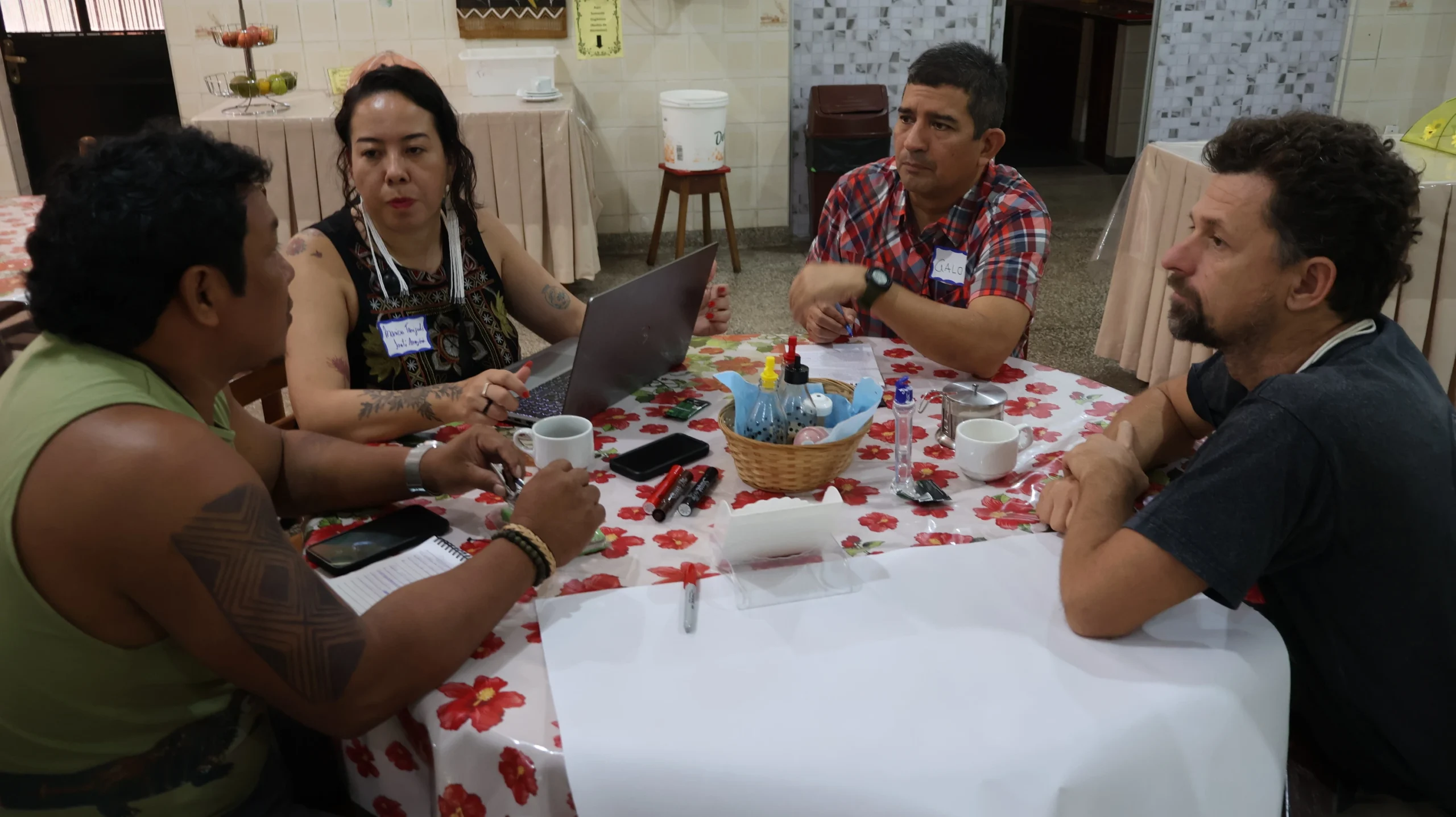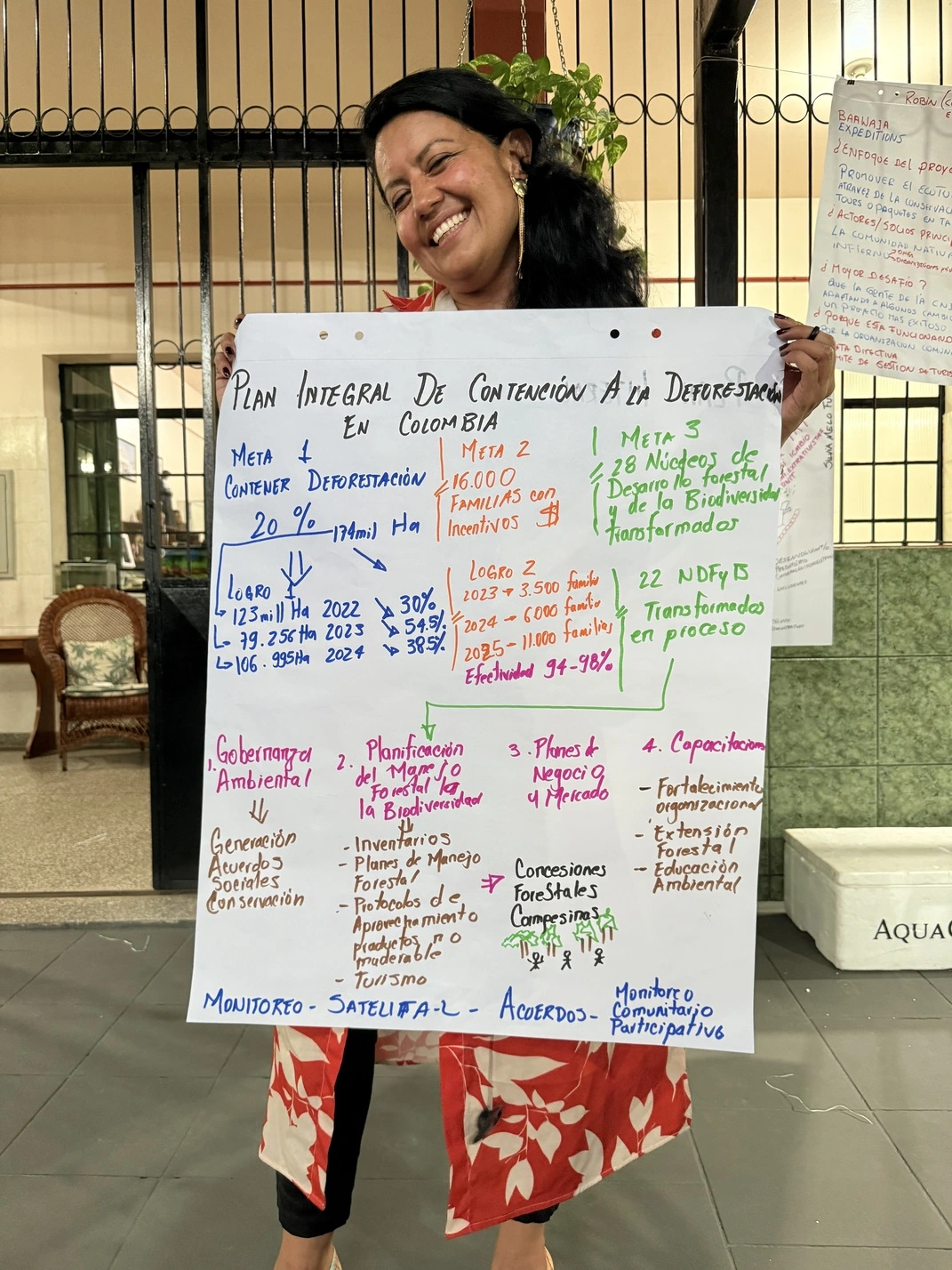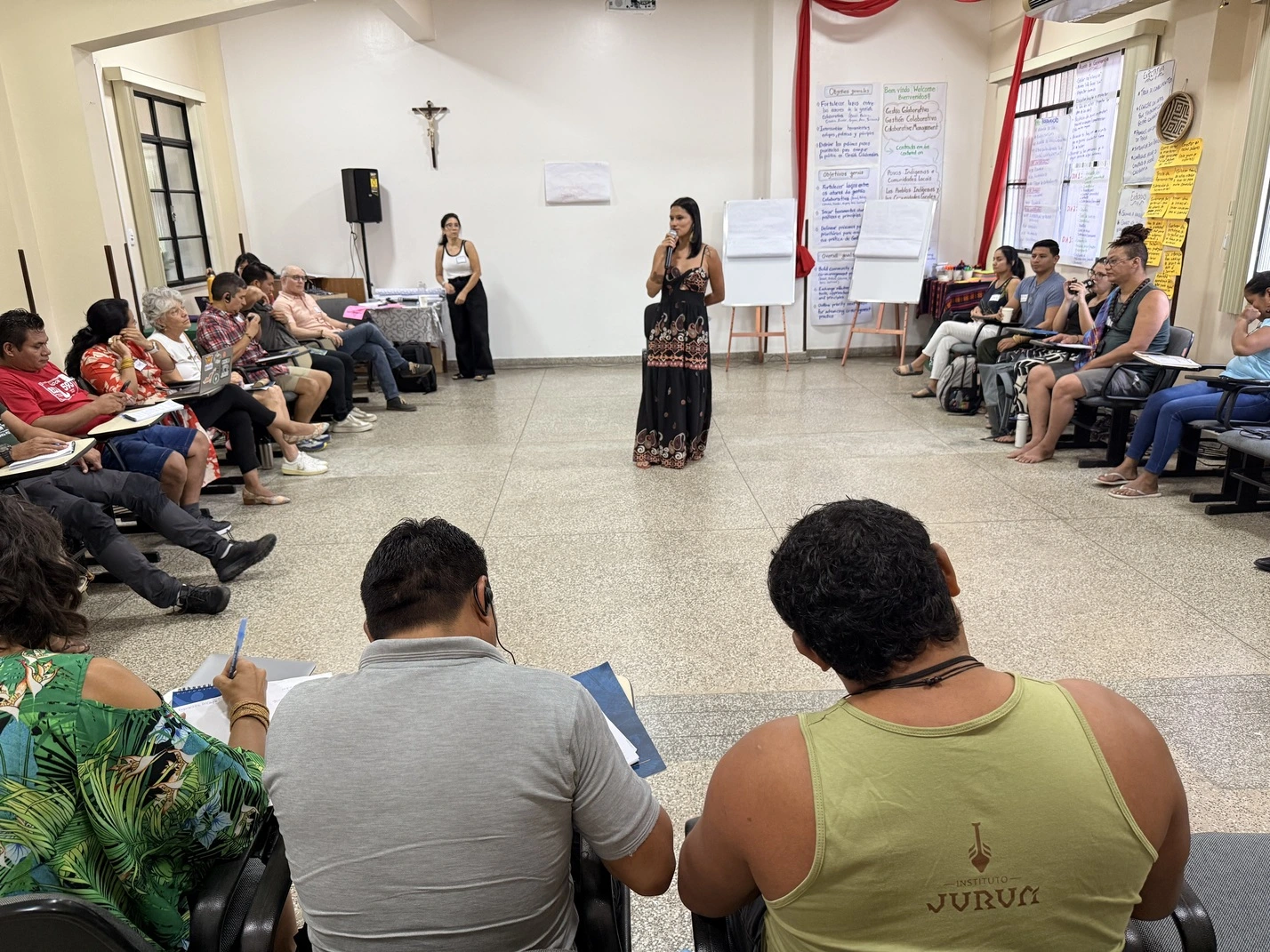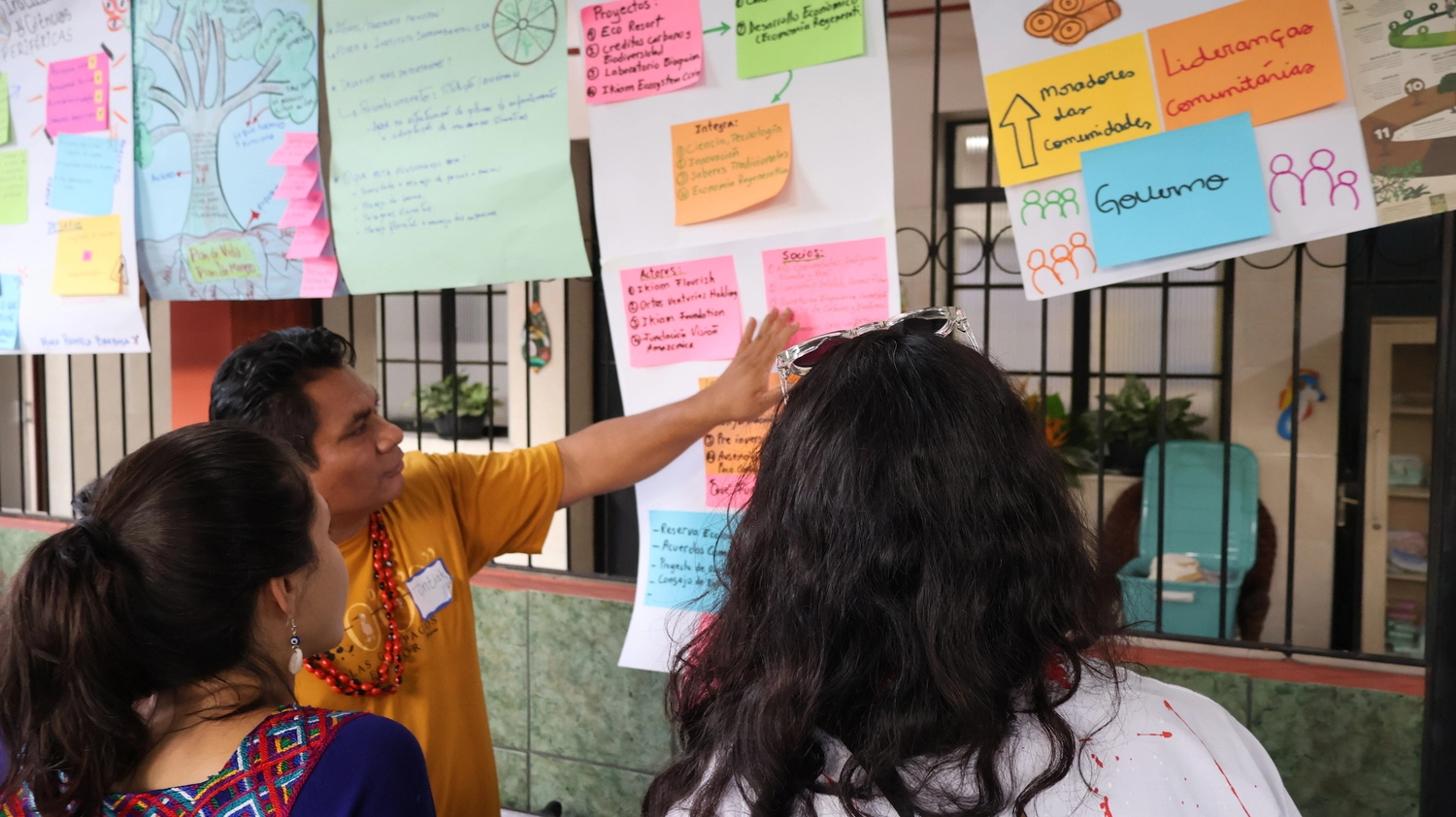Diverse voices from across the Amazon Basin convened for the third workshop of the Power of Connections project series, focused on strengthening Indigenous and local leadership in collaborative management of natural resources and territories.
Thirty participants representing eight countries – Bolivia, Brazil, Colombia, Ecuador, Guyana, Peru, Suriname, and the United States – gathered in the first week of September for the workshop Collaborative Management Centered on Indigenous Peoples and Local Communities (IPLCs). Over three days, Indigenous and community leaders, government representatives, NGOs, researchers, and private sector actors exchanged lessons, challenges, and innovations on issues ranging from fisheries agreements and timber management to wildlife conservation, fire governance, and broader territorial initiatives.
The workshop created a rare and innovative space in which different countries, sectors, and knowledge systems engaged directly. Bringing community associations, national agencies, international organizations, and academic institutions to the same table offered a unique opportunity to set priorities and build shared visions for future of the Amazon.
“I used to think our work had little value, but when I saw the map and the diversity of people and countries, I realized I am not alone,” said Ruth Marilin Buchapi Velasco. Ruth, also known as Marisita, is a Technical Officer Responsible for Comprehensive Monitoring and Follow-up at the Tsimane Mosetene Regional Council – Pilón Lajas, Bolivia.

Photo: Participants discuss collaborative management activities during the workshop. Photo: Jorge Pimentel Ramos, Instituto Jurua communicator.
Highlighting the importance of economic approaches that protect forests, Jenny Paola Gallo Santos of Colombia’s Ministry of Environment and Sustainable Development stated: “Our focus is to move away from deforestation and instead recognize that the forest is worth much more standing, through sustainable community-based use of both timber and non-timber products.”
Bolivia’s Marco Antonio Albornoz Castro, Director of the Center for Research and Rural People, added insights from his organization’s work demonstrating that mechanized rice production was not viable in the northern Bolivian Amazon, while showing how Brazil nut and other non-timber product harvests provide sustainable income streams. Their research directly shaped policies that protect forests and local livelihoods.

Photo: Jenny holds her poster that reveals concurrent reductions in deforestation with increased community protagonism in Colombia.
Participants collectively emphasized that collaborative management is not a single blueprint, but a living practice shaped by contexts of diverse peoples and territories.

Photo: Three days of intense exchange of knowledge in the heart of the Brazilian Amazon. Photo: Jorge Pimentel Ramos, Instituto Jurua communicator.
Ecuador’s Katan Jua Tuntiak Patricio explained, “Collaborative management is an innovation, a form of mutual learning. It integrates knowledge, experiences, and institutions so we can evolve and adapt to collective solutions.” And co-management is already producing tangible results based on key factors that underpin success:
- Recognizing and valuing traditional knowledge in equal measure with scientific tools,
- Securing territorial rights as the foundation for effective governance,
- Sustaining long-term partnerships built on continuity, equity, and mutual respect.

Workshop participants presenting their posters on collaborative management initiatives in their communities and organizations. Photo: Jorge Pimentel Ramos, Instituto Jurua communicator.
One workshop participant affirmed, “I came eager to learn about other experiences and expectations, also to share, and I think that’s what the whole workshop has been about. Exchanging ideas and experiences with people who are in the field, doing the work.” The Power of Connections project series continues to strengthen cross-border collaboration among Indigenous and local leaders, advancing efforts to safeguard the Amazon’s forests, rivers, and communities for generations to come.
More information about the project: https://amazonconservationconnections.com/es. This project is funded by the Gordon and Betty Moore Foundation through Grant GBMF13270.
About the Tropical Conservation and Development Program
The Tropical Conservation and Development (TCD) Program’s mission is to bridge theory and practice to advance biodiversity conservation, sustainable resource use, and human well-being in the tropics and beyond. TCD is a research and training program of the Center for Latin American Studies, with 10 core faculty and approximately 100 faculty affiliates across campus. TCD has a longstanding history of collaboration with partner organizations in the Amazon and of supporting networks of conservation practitioners dedicated to sustainable development.
About the Moore Foundation
Gordon and Betty Moore established the foundation to create positive outcomes for future generations. The Andes-Amazon Initiative (AAI) in the Gordon and Betty Moore Foundation was launched in 2003 to ensure the long-term ecological integrity and climatic function of the Amazon basin. Since its inception, the AAI has helped conserve over 980 million acres—23 times the size of Florida. The Moore Foundation works with and supports NGOs, Indigenous organizations, universities, research institutions, governmental agencies, and the private sector. Its current goal is to ensure that at least 70% of Amazon forest and freshwater ecosystems are effectively conserved and managed. Visit Moore.org and follow @MooreFound.

